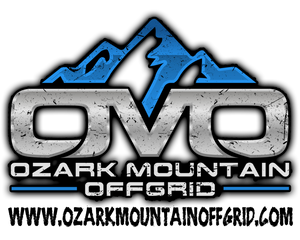The desire to live off the grid, powered by clean and renewable energy, is no longer a fantasy. Thanks to advancements in solar technology and innovative companies like Ozark Mountain Offgrid, achieving sustainable living is no longer a distant dream. Also, energy independence has become an attainable reality.
In this article, we will delve into the numerous advantages of off-grid solar power and explore the essential components that make up an off-grid solar system. Also, we’d discuss the critical factors to consider when designing your system and glimpse into the future of sustainable energy.
The Advantages of Living Off the Grid with Solar Power
Using solar power offers various advantages than you can imagine. These include:
Embracing Sustainable Living
Living off the grid with solar power significantly reduces your carbon footprint. By harnessing energy from the sun, you actively contribute to a cleaner and more sustainable future.
Energy Independence
One of the most compelling advantages is the freedom from utility companies. You become your power provider with off-grid solar, granting you energy independence.
Cost Savings
Using solar power saves you from long-term costs. While the initial investment may seem significant, the reduced or eliminated monthly utility bills can quickly offset the cost.
Reduced Environmental Impact
In addition, utilizing solar energy means fewer greenhouse gas emissions and less strain on natural resources. This choice perfectly aligns with a greener planet.
The Components of an Off-Grid Solar System
An off-grid solar system contains various important components that work hand in hand. Let's dive into each component.
- Solar Panels: The solar panel is the core of any off-grid solar system, making it easier to capture sunlight and transform it into electricity, powering your home.
- Solar Batteries: To ensure a constant supply of electricity, you need a reliable battery system to store extra energy acquired during the day for use at night or on cloudy days.
- Inverters: Inverters play a crucial role by converting direct current (DC) from your solar batteries and panels into alternating current (AC) that your household appliances use.
- Charge Controllers: Charge controllers manage the voltage and current from your solar panels and ensure your batteries are charged safely and efficiently.
- Backup Generator: For those rare occasions when solar power isn't sufficient, a backup generator can step in to keep your energy supply consistent.
Designing Your Off-Grid Solar System: Factors to Consider
Location and Climate
The effectiveness of your off-grid solar system depends on your geographical location and climate. Therefore it's essential to assess sunlight availability and weather conditions.
Energy Consumption
Understanding your energy needs is key to sizing your system correctly. Analyze your household's daily energy usage to determine the appropriate capacity.
Battery Capacity
Choosing the right battery capacity ensures you have enough stored energy to meet your needs during periods of low sunlight.
System Size
Balancing your system's size with your budget and energy requirements is critical. Ozark Mountain Offgrid's experts can help you find the perfect fit.
The Future of Sustainable Energy
The solar industry continues to innovate, with advancements in efficiency and affordability promising an even brighter future. With the advent of Off-grid solar systems, traditional power grids are being decentralized. This reduces outage vulnerability and enhances resilience.
In addition, living off the grid with solar power is not just a choice; it's a lifestyle that fosters sustainability and self-sufficiency.
Conclusion
As the world transitions towards sustainable living and energy independence, off-grid solar power emerges as a beacon of hope.
Ozark Mountain Offgrid empowers individuals and communities to embrace this future with confidence. If you're ready to take the plunge into a sustainable, off-grid lifestyle, don't hesitate to contact us today.
